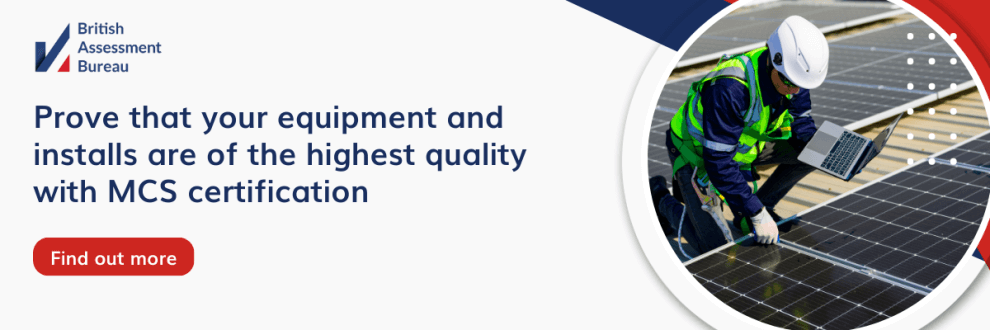To become an MCS-certified installer, a business needs to go through a multi-step process that involves demonstrating compliance with MCS installation standards. Here is a step-by-step guide:
1. Understand the requirements
The first step is to understand the requirements for MCS certification. These are detailed in the MCS Installer Standards and include technical competency requirements, quality management system requirements, and requirements for dealing with customers.
2. Training and qualifications
Ensure your team has the necessary training and qualifications to install the types of renewable energy technologies you plan to install. These could range from solar PV to wind turbines, heat pumps, and more.
3. Quality Management System (QMS)
Develop and implement a QMS within your business. This will need to cover all aspects of your business operations, from initial customer contact and quotation through to design, installation and after-sales service.
4. Choose an MCS certification body
Choose a trusted MCS certification body such as British Assessment Bureau to assess your business. This body must be approved by the United Kingdom Accreditation Service (UKAS) – at British Assessment Bureau, we are UKAS-approved.
Click here to become MCS-certified.
Submit your application for MCS certification to your chosen certification body. As part of your application, you’ll need to provide details about your business, your Quality Management System, and evidence of your team’s training and qualifications.
5. Undergo assessment
The certification body will then assess your application. This typically involves a review of your documentation, an office audit to assess your Quality Management System, and a site audit to assess the quality of your installations.
6. Address any non-compliances
If the certification body identifies any nonconformities during the assessment, you will need to address these and provide evidence of the corrective action you have taken.
7. Achieve MCS certification
Once the certification body is satisfied that you meet all of the MCS requirements, you will be granted MCS certification. Your business will then be listed on the MCS website as a certified installer.
8. Maintain your certification
MCS certification is not a one-time process. To maintain your certification, you must demonstrate ongoing compliance with the MCS standards. This typically involves undergoing annual reassessments by your certification body.
This process is a significant commitment, but it provides a valuable assurance of quality for your customers and can open up new business opportunities. As always, it’s recommended to consult the official MCS guidelines and work closely with your chosen certification body throughout the process.







